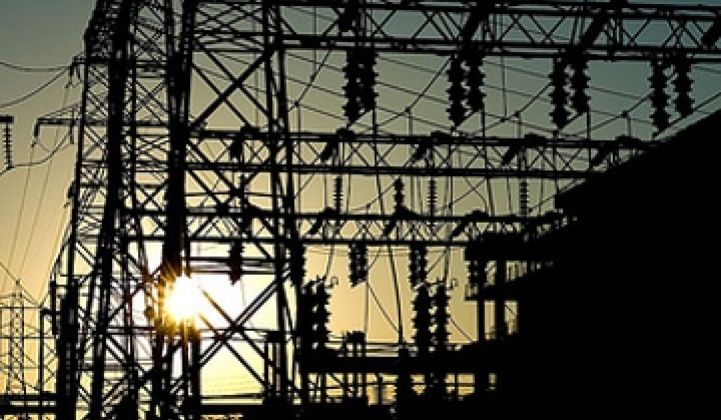European utilities are slowing down investments in smart grid and renewable energy projects in the face of a global recession – and that could make it harder for them to meet aggressive goals to expand in both categories in the coming decade or so, according to a new report from consulting company Capgemini.
The European Energy Markets Observatory report said that the first half of 2009 saw European electricity sales drop about 5 percent, and natural gas sales drop about 8 percent.
That's led to decreased revenues and deferred investment, the report said. Renewable energy investment, for example, fell to $21.2 billion in the second half of 2008, a 14 percent decline from the same period in 2007.
That shift could make it a challenge for Europe to meet its goal of getting 20 percent of its energy from renewable resources by 2020, the report said.
For example, the report's analysis of current power generation investment plans shows that only 8 percent is aimed at renewable sources, while 50 percent is for gas-fired plants and 24 percent is for coal-fired plants, the Financial Times reported.
Of course, Europe is still the largest market in the world for solar power, and is a leading builder of wind power as well (see Germany Installs 2.34GW, FIT to Decline 9-11% and U.S. Solar Market: So Promising, Except for 2009).
And government stimulus spending, such as a €4 billion ($5.9 billion) energy infrastructure investment plan approved by the European Parliament in May, have helped boost investor confidence, the report said. Spending on mergers and acquisitions in the European clean tech sector rose to €8.8 billion ($13.2 billion) in the second quarter of 2009, up from €1.1 billion ($1.6 billion) in the first quarter of the year, the report said.
Still, the global economic crisis also came at a time when many European utilities had been spending their "war chests" in acquiring other companies, the report said. That trend has also seen utilities' debt load increase by about 113 percent from 2006 to 2008, to reach €213 billion ($319 billion) at the end of last year.
In a reversal of the acquisition trends of the past few years, some European power companies are looking to sell off divisions, the report said.
The poster child for that trend could be France's Areva, the nuclear power plant giant that is seeking to sell its transmission and distribution unit for about €4 billion ($5.96 billion). Bidders include General Electric, Toshiba Corp. and a French consortium including Alstom and Schneider Electric (see Bloomberg).
Any slowdown in spending on grid improvements could lay challenges for meeting smart grid goals, such as the European Union's 2022 deadline for every electrical meter to have some kind of two-way communications and control capability (see Green Light post).
The report comes as Europe is seeking to prove its commitment to fighting climate change to gain similar pledges from countries like China and India in Copenhagen in December. That's when world governments will meet to craft a greenhouse-gas emissions reduction agreement to succeed the Kyoto Protocol (see IEA: Climate Change Could Double Energy Bills Without Action).
Photo via Flickr/Creative Commons.



